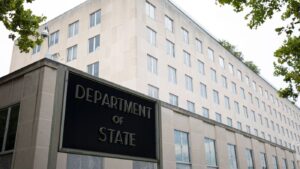Federal Funding Freeze Hits Cornell and Northwestern Universities
In a significant move by the Trump administration, more than one billion dollars in federal funding for Cornell University and nearly 800 million dollars for Northwestern University are being frozen. This decision is a part of the administration’s strategy to wield government funding as a tool to ensure colleges and universities align with the President’s political goals.
According to NPR’s Elissa Nadworny, this funding halt relates to an investigation by the Department of Education into 60 universities, including Cornell and Northwestern, regarding alleged failures to protect Jewish students on their campuses. The research funds will remain on hold while these allegations are examined. Notably, this marks the first occasion the Department of Education has entirely suspended funding to institutions over civil rights issues under President Trump’s leadership.
This funding freeze impacts ongoing research projects at these universities. For example, Cornell University reports receiving over 75 stop-work orders from the Department of Defense, affecting projects in national defense, cybersecurity, health, and more. These grants support critical research in areas such as jet engines, superconductors, space and satellite communications, and cancer research.
The legality of this funding freeze is under scrutiny. Michael Dorf, a law professor at Cornell, commented on the situation: “The answer to the question, can the government do this, is no. The answer to the question, can the government get away with this is unknown.” According to legal procedures, if civil rights violations are confirmed, the government must ensure they do not recur and follow specific protocols before enacting funding cuts.
University leaders face a challenging decision on how to respond. Litigation appears to be the primary recourse, but it poses financial risks and uncertainties about securing future federal grants. Dorf highlighted the dilemma, stating, “I fully understand the trepidation of university leadership because they’re not only thinking about, can we win this case, but can we secure our funding going forward into the future?”
While the funding cuts have sparked controversy, some scholars see them as necessary. Richard Vedder, a senior fellow at the Independent Institute, supports the administration’s scrutiny of research grant allocations. He remarked, “It’s not perhaps the ideal way to change things. It may be a disruptive way to change things, a chaotic way to change things, in some cases, even an unfair way to change things. But nonetheless, a message is being sent.” Vedder argues that higher education harbors inefficiencies, and reevaluating federal research funding is a justified approach.






